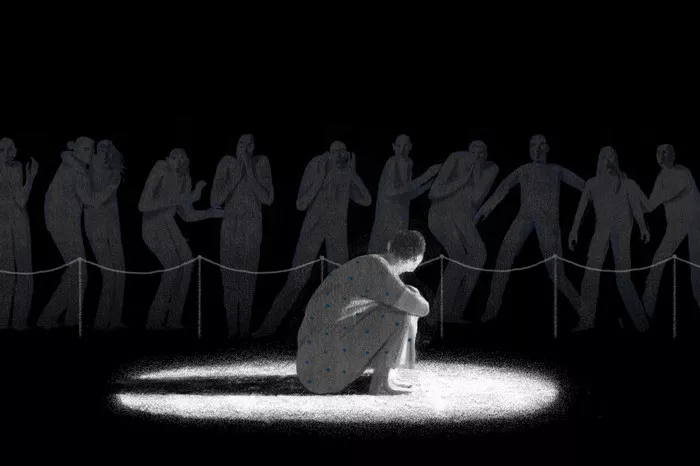Understanding GAD and Depression
Generalized Anxiety Disorder (GAD) and depression are two of the most common mental health disorders, affecting millions worldwide. They often coexist, complicating the treatment landscape. GAD is characterized by persistent and excessive worry about various aspects of daily life, while depression encompasses a range of symptoms including persistent sadness, loss of interest in activities, and fatigue.
First-Line Treatments: Antidepressants
Antidepressants are the cornerstone of pharmacological treatment for both GAD and depression. Selective Serotonin Reuptake Inhibitors (SSRIs) and Serotonin-Norepinephrine Reuptake Inhibitors (SNRIs) are typically the first-line medications prescribed due to their efficacy and safety profile12.
SSRIs: Balancing Serotonin Levels
SSRIs, such as Lexapro (escitalopram) and Zoloft (sertraline), work by increasing the levels of serotonin in the brain—a neurotransmitter associated with mood regulation1. They are preferred for their lower risk of side effects and addiction potential compared to other drug classes.
SNRIs: Dual-Action Effectiveness
SNRIs, like Effexor XR (venlafaxine) and Cymbalta (duloxetine), target both serotonin and norepinephrine, offering a dual-action approach that can be particularly effective for individuals with co-occurring GAD and depression2.
Benzodiazepines: Quick Relief with Caution
Benzodiazepines provide rapid relief from anxiety symptoms but are generally reserved for short-term use due to their high potential for dependence and withdrawal issues1.
Azapirones: A Gentler Alternative
Azapirones, such as Buspar (buspirone), are another class of anti-anxiety medications with antidepressant properties, suitable for long-term management of GAD1.
Anticonvulsants and Antipsychotics: Other Options
Though not as commonly used, anticonvulsants and antipsychotics may be considered in treatment-resistant cases or when patients have specific symptoms that these drugs can address1.
Personalized Medicine: Tailoring Treatment to the Individual
No single medication works for everyone. Finding the right drug and dosage is a personalized process that may involve trial and error. It’s crucial for patients to work closely with their healthcare providers to monitor effectiveness and adjust treatment as needed.
The Role of Cognitive Behavioral Therapy (CBT)
While medications can provide significant relief, CBT is a highly effective non-pharmacological treatment for both GAD and depression. It helps individuals develop coping strategies to manage their symptoms and address the underlying thought patterns contributing to their conditions.
Conclusion:
The best drug for GAD and depression depends on individual needs and responses to treatment. A combination of medication and therapy often yields the best outcomes, highlighting the importance of a multifaceted approach to mental health treatment.
FAQs
What’s the best antidepressant for GAD?
The choice of antidepressant for generalized anxiety disorder (GAD) often depends on individual factors such as medical history, side effect profile, and response to treatment. SSRIs (Selective Serotonin Reuptake Inhibitors) like sertraline and escitalopram are commonly prescribed due to their efficacy and tolerability in managing both anxiety and depression symptoms.
What is the best long term anxiety medicine?
When considering long-term management of anxiety disorders, medications that have been shown to be effective and safe over extended periods are preferred. SSRIs like sertraline and SNRIs (Serotonin-Norepinephrine Reuptake Inhibitors) such as venlafaxine are often used due to their proven track record in maintaining symptom control and minimizing relapse rates over time.
What is the first drug of choice for GAD?
The first-line medication for generalized anxiety disorder (GAD) typically includes selective serotonin reuptake inhibitors (SSRIs) or serotonin-norepinephrine reuptake inhibitors (SNRIs). Examples include medications like escitalopram, sertraline, and duloxetine. These drugs are favored for their effectiveness in reducing anxiety symptoms and their relatively mild side effect profiles compared to older classes of antidepressants.
Related topics:
- Depression and Insomnia: The Best Medications for Dual Challenges
- Treatment Options: What Is Prescribed for Depression
- Finding the Best Medication for Depression and Panic Attacks


